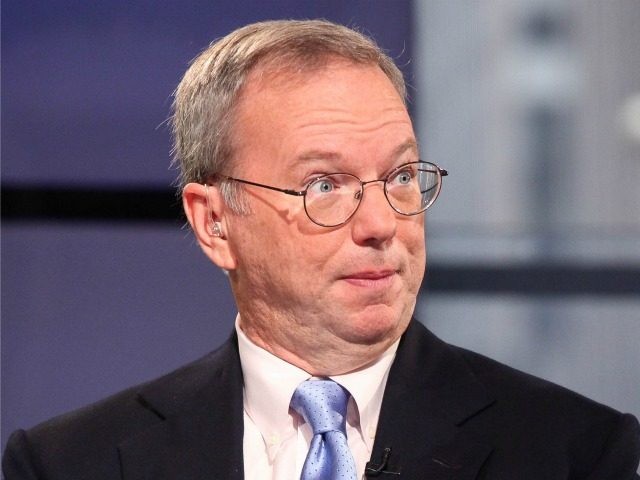A group of major U.S. advertisers, including AT&T, Verizon, and Johnson & Johnson have withdrawn their advertising from Google, despite the company’s pledge to crack down on “offensive” and “extremist” content.
AT&T claimed to be “deeply concerned” about their adverts appearing alongside content on YouTube promoting “hate.”
“We are deeply concerned that our ads may have appeared alongside YouTube content promoting terrorism and hate,” said AT&T in a statement, pulling all Google advertisements except for search results. “Until Google can ensure this won’t happen again, we are removing our ads from Google’s non-search platforms.”
Verizon’s Sanette Chao also claimed in a statement that the company “took immediate action” after learning that their adverts were appearing on certain websites.
“Once we were notified that our ads were appearing on non-sanctioned websites, we took immediate action to suspend this type of ad placement and launched an investigation,” Chao claimed.
As reported by USA Today, “More than 250 organizations including the British government, Toyota and McDonald’s have stopped advertising on YouTube in the U.K.”
The BBC, The Guardian, and Channel 4 also withdrew advertisements, citing their adverts appearing alongside “extremist” and “offensive” content as the reason.
In a blog post this week, Google pledged to combat “hateful” content on its platforms, announcing a set of new tools for advertisers, as well as a plan to remove ads “more effectively from content that is attacking or harassing people based on their race, religion, gender or similar categories.”
“Recently, we had a number of cases where brands’ ads appeared on content that was not aligned with their values. For this, we deeply apologize,” wrote Google’s Chief Business Officer, Philipp Schindler, in the official blog post. “We know that this is unacceptable to the advertisers and agencies who put their trust in us. That’s why we’ve been conducting an extensive review of our advertising policies and tools, and why we made a public commitment last week to put in place changes that would give brands more control over where their ads appear.”
“I wanted to share that we’ve already begun ramping up changes around three areas: our ad policies, our enforcement of these policies and new controls for advertisers,” he continued. “We know advertisers don’t want their ads next to content that doesn’t align with their values. So starting today, we’re taking a tougher stance on hateful, offensive and derogatory content. This includes removing ads more effectively from content that is attacking or harassing people based on their race, religion, gender or similar categories. This change will enable us to take action, where appropriate, on a larger set of ads and sites.”
Schindler also added that the company would be “hiring significant numbers of people and developing new tools powered by our latest advancements in AI and machine learning to increase our capacity to review questionable content for advertising.”
“In cases where advertisers find their ads were served where they shouldn’t have been, we plan to offer a new escalation path to make it easier for them to raise issues,” he explained. “In addition, we’ll soon be able to resolve these cases in less than a few hours.”
Earlier this month, Google also took heat from the UK Home Affairs Select Committee, who claimed the company was being too “soft” on “hate speech.”
“The committee directed most of their intense scrutiny towards Google in regards to videos posted on YouTube that are ‘peddling hate,’ according to Labour MP Chuka Umunna,” wrote Breitbart News contributor Jack Hadfield, last week. “Focusing on videos uploaded by the ex-KKK leader David Duke and the now proscribed extremist organization National Action, Umunna accused Peter Barron, the vice president of communications and public affairs at Google Europe of profiting off of these videos, along with allowing the individuals themselves to make money as well.”
After Labour Party MP and chair of the committee Yvette Cooper also attacked YouTube for not censoring “hateful” videos, Barron defended free speech, explaining that the flagged videos did not violate YouTube’s terms of service.
“Tending towards a more pro-free speech line, Barron said that while the statements were ‘anti-Semitic, deeply offensive and shocking,’ he insisted that they didn’t ‘meet the test for removing under our guidelines. We are in favor of free speech and access to information,’” Hadfield reported.
Despite Google’s pledge to combat “offensive” content more efficiently, Pivotal Research Group analyst Brian Wieser claims the company isn’t doing enough to “reassure advertisers.”
“Google’s response to the matter has been insufficient so far, and it’s not clear that they’ll develop one that is sufficient soon enough to deter others,” he claimed, adding Google should have a zero-tolerance policy for putting advertisers in “unsafe environments when they place ads.”
Charlie Nash is a reporter for Breitbart Tech. You can follow him on Twitter @MrNashington or like his page at Facebook.

COMMENTS
Please let us know if you're having issues with commenting.